A Comprehensive Overview and Update
Cherokee County’s Water Treatment Plant is crucial in providing clean and safe drinking water to the area’s residents. Operated by the Cherokee County Water and Sewerage Authority (CCWSA), the plant ensures that the growing population has a reliable supply of high-quality water by harnessing the resources of the Etowah River. This river, originating in Lumpkin County, flows southward into Cherokee County, offering an excellent raw water source for the community.
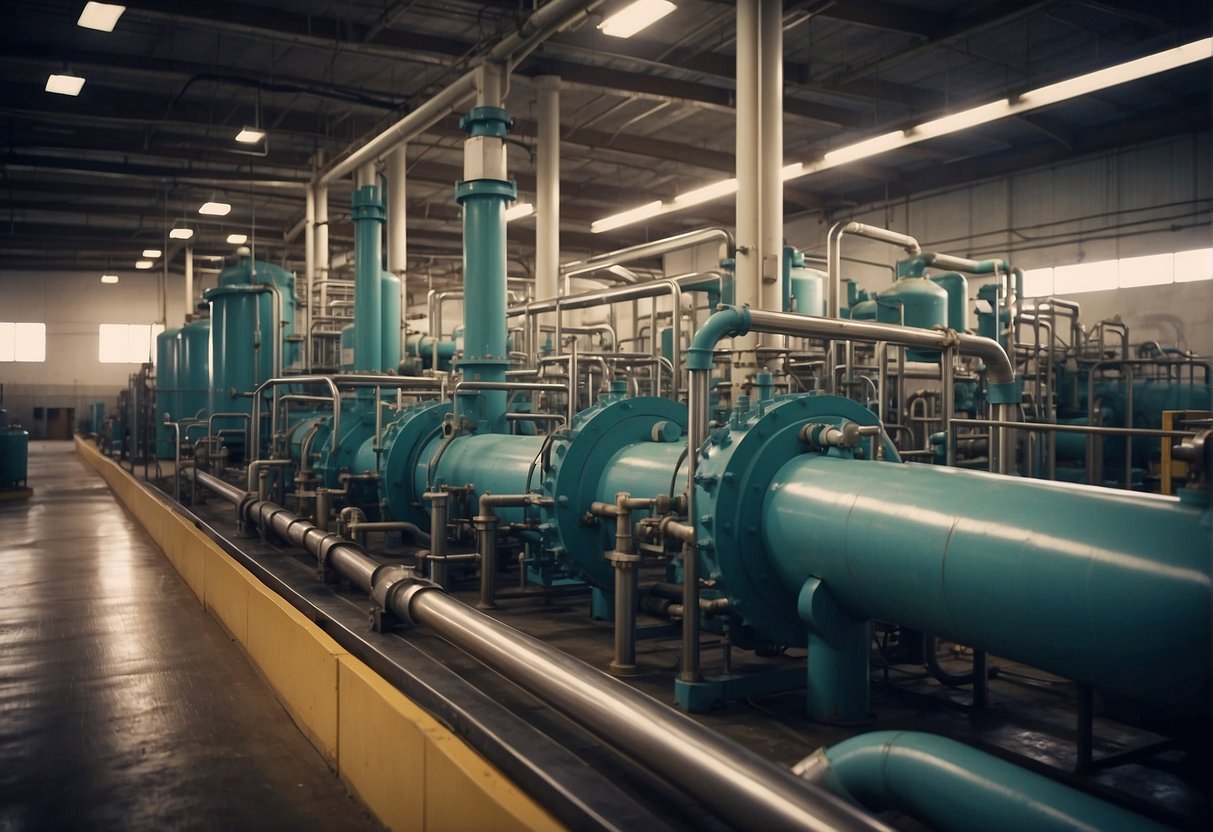
The CCWSA has made significant investments in developing and expanding the Etowah River Water Treatment Facility. This effort has increased its operable capacity to an impressive 38 million gallons per day, allowing it to meet the rapidly expanding population’s demands effectively. The plant employs advanced technologies and purification processes to maintain high water quality standards, ensuring that the water meets or exceeds all regulatory requirements.
Cherokee County is committed to providing clean and sustainable water resources for its residents. By continually investing in the infrastructure of the Water and Wastewater Treatment Plant, the CCWSA plays a pivotal role in preserving and enhancing the quality of life for the community. With a strong focus on continuous improvement and innovation, Cherokee County’s Water Treatment Plant symbolizes dedication to public health and sustainability.
History and Overview
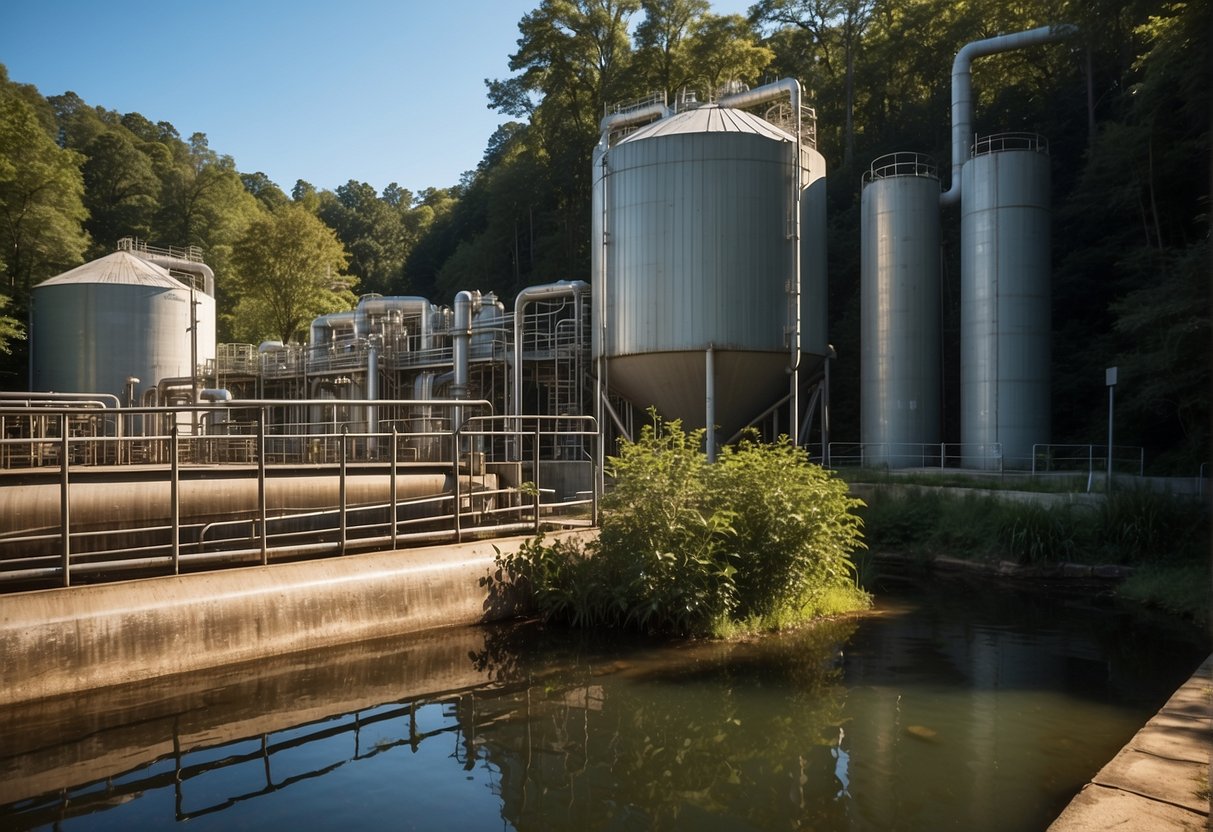
Cherokee County Water and Sewerage Authority
The Cherokee County Water & Sewerage Authority (CCWSA) was established in 1955 as a subdivision of the government of the State of Georgia. Its purpose is to provide public drinking water and sanitary sewer services to the citizens of Cherokee County. CCWSA has undergone significant expansion since its inception, allowing it to meet the growing water needs of the county.
Etowah River as a Water Source
The Etowah River, located in northeastern Cherokee County, serves as the primary water source for the treatment plant. The original water treatment facility (WTF) was constructed in 1986 and expanded in the mid-1990s to increase its capacity to 18 million gallons per day (MGD). Facing growing demand, CCWSA expanded the facility again in 2004.
Key Expansion Dates:
- 1986: Original WTF construction
- Mid-1990s: First expansion, increasing capacity to 18 MGD
- 2004: Second Expansion
The Etowah River Water Treatment Plant has been recognized for its exceptional operation, winning the Best Operated Water Plant of the Year Award from the Georgia Association of Water Professionals in 2014, 2017, and 2019. As the sole source of treated drinking water in Cherokee County, the plant is crucial in ensuring clean and safe water for its residents. As mentioned on the Water and Wastewater website, water treatment plants provide a fantastic service to the community.
Water Treatment Process
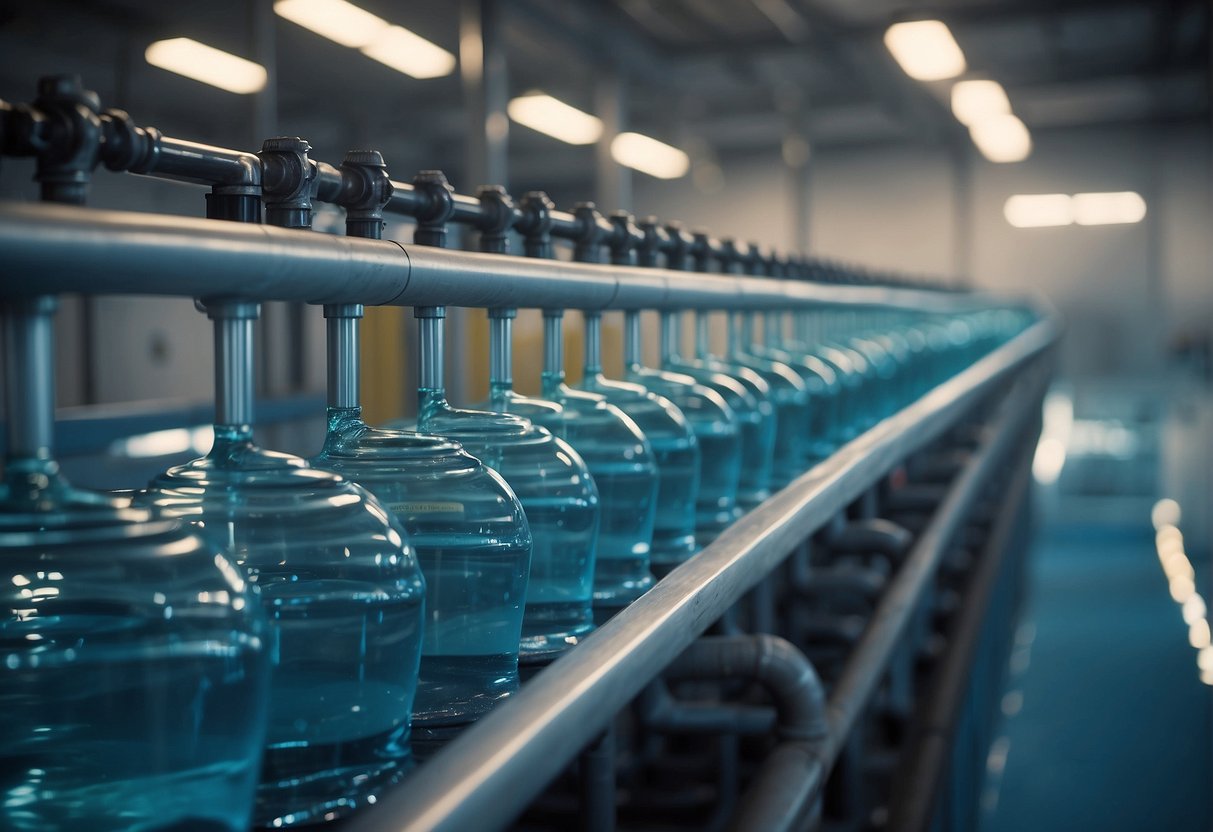
Contaminant Removal
The water treatment process at Cherokee County’s Etowah River Water Treatment Plant starts with removing contaminants from the Etowah River’s raw water source. This involves a series of treatment stages to ensure high water quality standards. The plant employs advanced methods and technologies to effectively remove sediment, organic matter, and other pollutants.
Sedimentation is the first step in the contaminant removal process. The water is directed into large settling basins where heavier particles sink to the bottom and are later removed. Coagulation and flocculation involve adding chemicals to the water, encouraging smaller particles to clump together and form larger flocs. These flocs are more straightforward to separate from the water during further sedimentation or filtration processes.
Next, filtration comes into play. The water is passed through layers of sand, gravel, and sometimes, activated carbon to remove additional fine particles, microorganisms, and residual contaminants. This step enhances water’s clarity and overall quality before it moves to the next stage – disinfection.
Chlorination and Disinfection
Finally, the chlorination and disinfection process begins to safeguard the treated water against any harmful bacteria, viruses, or other pathogens that may still be present. During this process, chlorine is added to the water. Chlorine is a highly effective disinfectant, proven to neutralize microorganisms and ensure safe drinking water for consumers.
The plant applies the correct chlorine dosage to maintain an optimal residual chlorine level throughout the distribution system. This helps keep the water safe as it transports to homes and businesses across Cherokee County.
In addition, the Etowah River Water Treatment Plant continually monitors the water quality at various stages of the treatment process. Comprehensive testing and analysis ensure that the treated water complies with federal and state water quality standards. By adhering to such stringent measures, the plant continuously supplies clean and safe drinking water to the residents of Cherokee County.
Infrastructure and Expansion
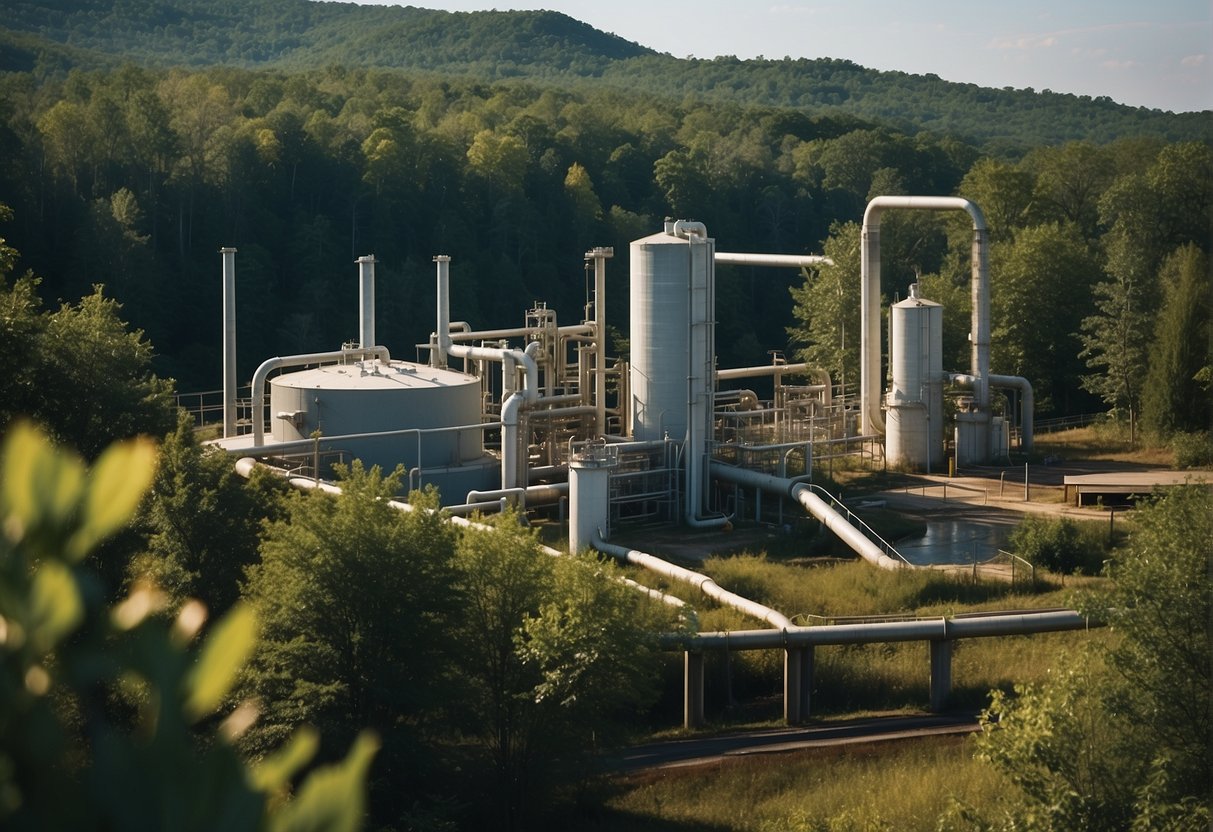
Current Facilities
Cherokee County’s water plant sources raw water from the Etowah River and has undergone significant expansions in recent years. The plant’s current operable capacity is 38 million gallons per day, substantially increasing from its original construction in 1986. As a result of these expansions, the plant now serves nearly 200,000 residents.
Located in northeastern Cherokee County along the Etowah River, the water treatment facility (WTF) expanded in the mid-1990s, allowing it to treat up to 18 million gallons daily. In 2004, the Cherokee County Water and Sewer Authority (CCWSA) began another expansion to meet growing demand, making it the county’s sole source of treated drinking water.
Future Expansion Plans
With ongoing population growth and the need to ensure residents have access to clean, safe drinking water, continued investment in infrastructure expansion is paramount. Projects like the record $789.4M allocation for drinking water and wastewater projects statewide offer promising opportunities for further improvements in Cherokee County.
While specific plans for the Cherokee County Water Plant’s future expansion have not been detailed, regional projects such as expansion of the Sanford water filtration facility or wastewater treatment plant upgrades in nearby Andrews will undoubtedly influence plans.
As the CCWSA pursues necessary investments in water and wastewater infrastructure, it will strive to maintain a confident, knowledgeable, neutral, and transparent approach in its planning and development endeavors. Providing residents with safe, reliable access to drinking water remains their top priority, and their commitment to infrastructure expansion will continue to be a vital asset to Cherokee County’s rapidly growing community.
Community and Customer Relations
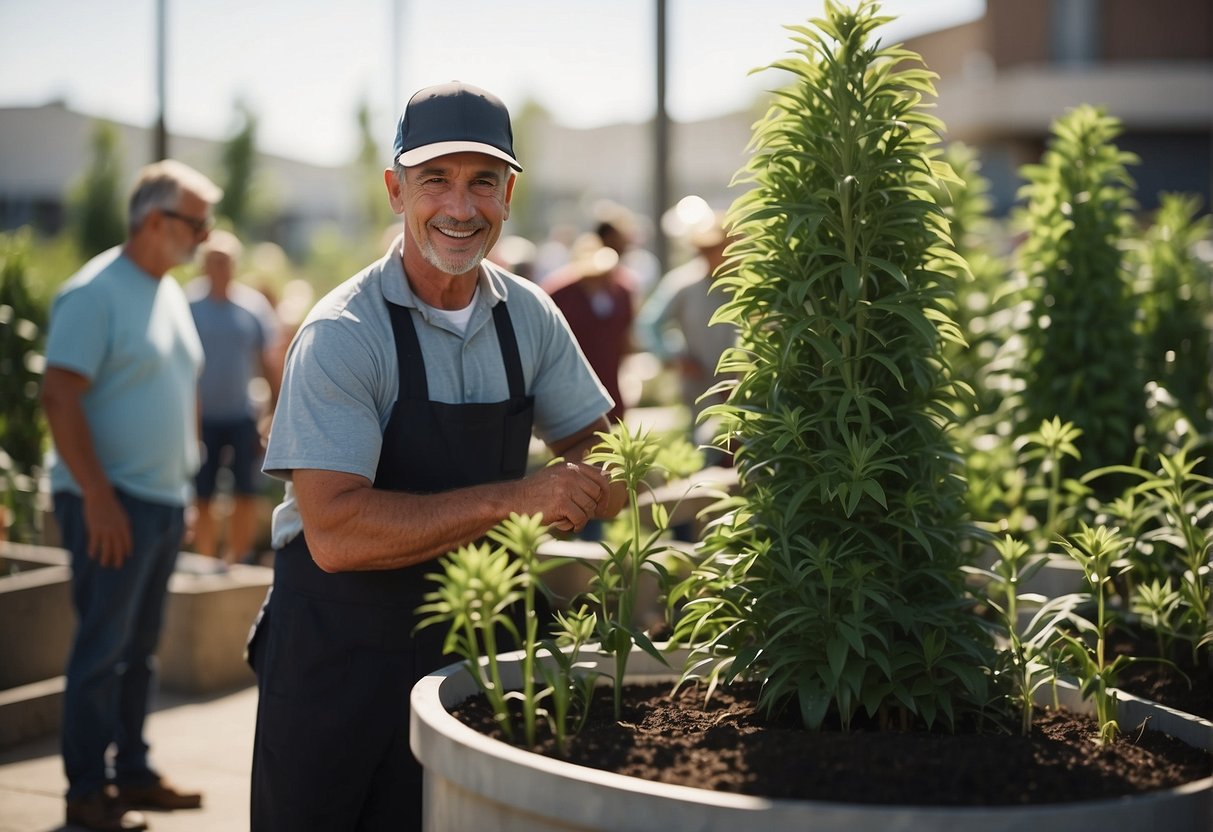
Public Health Commitment
Cherokee County Water and Sewerage Authority (CCWSA) is dedicated to protecting public health by providing high-quality water to its customers. With the Etowah River Water Treatment Plant as its main facility, CCWSA ensures the production of safe and reliable drinking water for over 190,000 residents in the county.
CCWSA’s commitment to public health is evident in its rigorous water quality testing. The 2020 Annual Water Quality Report reflects their continuous efforts to maintain the highest water quality standards for residents and businesses in Cherokee County.
Education and Outreach
To further engage the community and educate customers about water resources and conservation, CCWSA provides various educational and outreach programs. Customers can access the latest information and updates through their Public Information Specialist, who is available to answer any water quality or service inquiries.
CCWSA also actively collaborates with local schools and organizations, offering water conservation, treatment, and management educational opportunities. By fostering a strong relationship with the community, they aim to create a well-informed customer base that actively participates in protecting and preserving valuable water resources.
In conclusion, the Cherokee County Water and Sewerage Authority’s focus on community and customer relations is crucial to maintaining a robust public health commitment, alongside promoting education and outreach activities. This conscious effort ensures high-quality drinking water for the residents and businesses of Cherokee County, maintaining a resilient and sustainable water system for future generations.
Regulatory Compliance and Quality Assurance
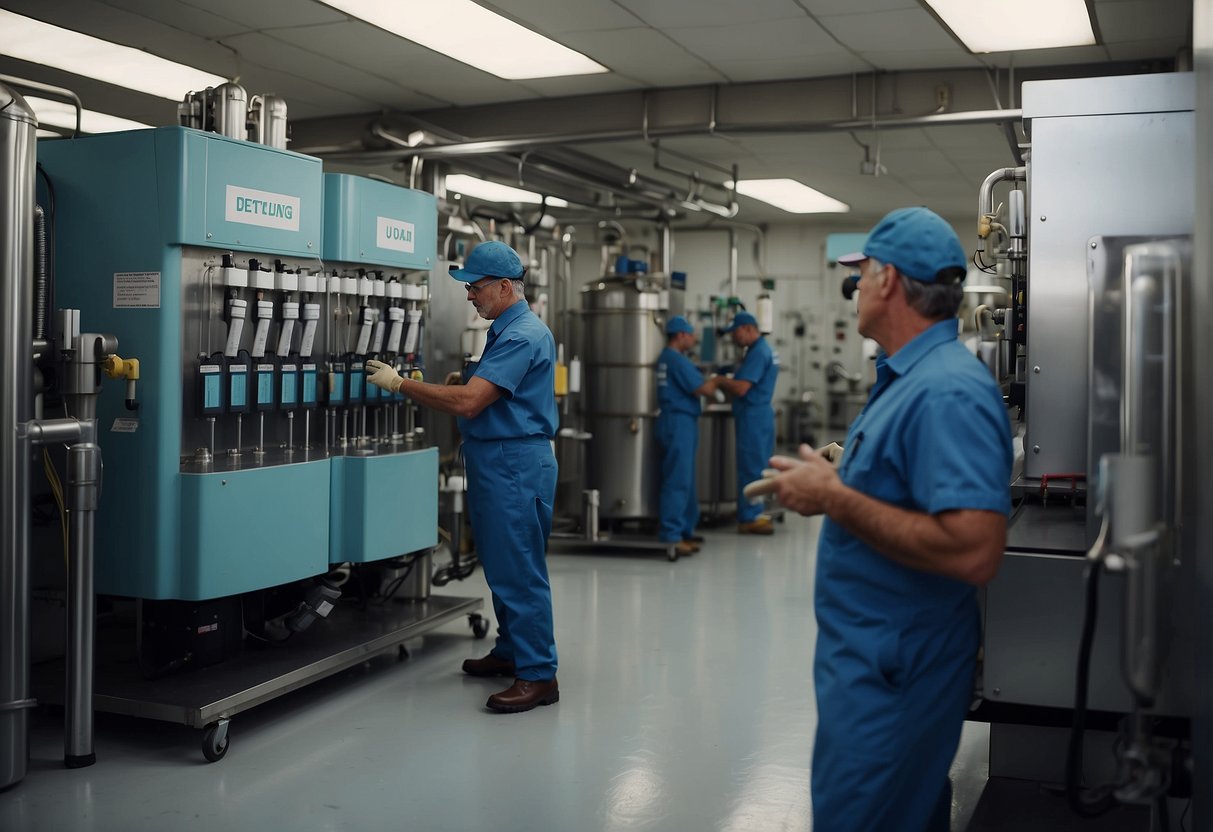
Adherence to State Regulations
Cherokee County’s Water Plant is dedicated to strict compliance with state regulations and standards. Their regulatory compliance staff works tirelessly to protect the county’s water, air, soil, plants, and animals by collaborating with landholders, ensuring all practices are by the law [^1^]. This commitment is crucial to adhere to the Georgia Stormwater Management Manual (GSWMM) regulations for stormwater quantity and quality [^4^].
Monitoring Water Quality
The plant monitors water quality and strives to surpass all established standards. For instance, the Cherokee County Water and Sewerage Authority (CCWSA) consistently meets or exceeds water quality standards, as evidenced by their annual water quality reports [^2^]. These reports provide transparency and valuable information about the water source and the test results [^3^].
To maintain the high quality of water, the plant monitors various parameters, including lead and other contaminants. By adhering to the established regulations and sharing their findings with the public, the Cherokee County Water Plant is committed to providing clean and safe water to its residents. Through this ongoing dedication to regulatory compliance and quality assurance, the plant ensures the state’s water remains pristine and safe for consumption.